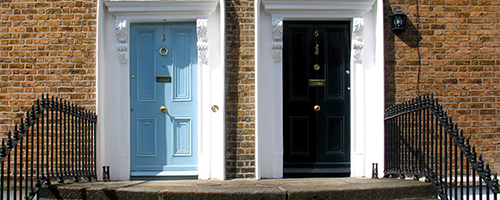|
|
|
|
|
|
|
|
|
|
|
|
Standard Chartered to Sell Carbon Credits for Brazilian State Seeking to Protect Amazon
|
|
|
|
|
|
|
|
Today: A London-based bank eyes forest carbon credits; automakers wrangle with tariff-driven losses; a battery maker founder charts a new path.
|
|
|
|
|
|

|
|
Ashaninka's territory sits along the winding Amonia River in Acre state, Brazil. Photo: AP Photo/Jorge Saenz
|
|
|
|
|
|
Welcome back: Standard Chartered plans to sell forest protection carbon credits on behalf of the Brazilian state of Acre as part of a bid to protect the Amazon rainforest, WSJ Pro Sustainable Business’s Yusuf Khan writes.
The London-based bank will sell up to five million carbon credits over a five-year period starting in 2026, in one of the first instances of a major bank working with a state or local government to support forest conservation by directly selling carbon credits. The effort is also intended to drive more cash to indigenous communities.
Ordinarily, project developers sell credits to buyers directly or through buying platforms or brokers, with banks providing financing to facilitate transactions or in some cases trading credits themselves. Standard Chartered is taking a more active role with Acre as it seeks to boost what it sees as nascent areas of sustainability financing.
Projects like Acre’s represent an important way of protecting forests and nature—a key focus of this year’s global climate negotiations, known as COP, due to take place in Brazil in November.
|
|
|
|
|
|
|
|
|
Content from our sponsor: Deloitte
|

|
|
Digital Twins: AI, Richer Data Unlock New Doors
|
|
Spatial computing and synthetic data are among the innovations creating new opportunities to apply digital twins. Read More
|
|
|
|
|
|
|
|
|
Auto Industry Takes $12 Billion Hit From Trade War
|
|
|
|

|
|
The production line of the VW ID.3 compact hatchback electric automobile at the Volkswagen AG factory in Dresden, Germany. Photo: Krisztian Bocsi/Bloomberg News
|
|
|
|
|
|
President Trump’s tariff war has inflicted almost $12 billion of losses on global automakers, the biggest hit they have faced since the pandemic, WSJ’s Stephen Wilmot writes.
The scary reality: This may be just the beginning.
Beyond the continuing cost of tariffs, automakers in the U.S., Japan, South Korea and Europe face years of retooling and supply-chain tweaks to adjust to the new realities. This comes after they spent heavily to reshape factories for electric vehicles.
The obvious responses to tariffs are to raise prices and move production to the U.S. But both are hard for carmakers to do quickly, potentially saddling them for years to come.
Moves to unwind climate regulations spare Detroit the cost of increasing unprofitable EV sales or buying emissions credits—at the expense of Tesla and Rivian, which profited from selling credits—while giving the industry license to sell as many lucrative pickup trucks as it can.
|
|
|
|
|
|
|
|
|
Sustainability financing is “helping to monetize natural capital assets, which is a thorny, tricky subject.”
|
|
— Marisa Drew, chief sustainability officer at Standard Chartered
|
|
|
|
|
|
|
|
This Battery Pioneer Is Worth $40 Billion, but He’s No ‘Rich Guy’
|
|
|
|

|
|
Robin Zeng, founder and chairman of Contemporary Amperex Technology Co Ltd., on stage during the company's Tech Day event in Shanghai, China. Photo: Qilai Shen/Bloomberg News
|
|
|
|
|
|
The founder of the world’s largest battery maker represents a new type of tycoon flourishing in Xi Jinping’s China, WSJ’s Rory Jones and Yang Jie write.
With an estimated net worth of nearly $40 billion, Robin Zeng could definitely afford to buy a superyacht. The thing is, he doesn’t want to. He’s understated, philanthropic and ready to echo official state talking points.
“I don’t want to be the rich guy,” Zeng said on a video podcast hosted by Norway’s sovereign-wealth fund, ahead of the Hong Kong listing in May of his company, CATL. “I want to share these riches,” he added, “to try to create a good society.”
The listing raised $5.3 billion, making it the largest public offering in the world this year. CATL, known officially as Contemporary Amperex Technology, capitalized on rising demand from electric-vehicle makers like Tesla. Its batteries were installed in one out of every three EVs globally last year.
|
|
|
|
|
|
|
|
|
|
|
|
-
Trump pledged to bring back manufacturing. The sector is sputtering. (WSJ)
-
Trump’s attack on wind, solar cuts deeper than industry expected (Bloomberg)
-
Chemical pollution a threat comparable to climate change, scientists warn (Guardian)
-
Federal rooftop solar grants are on the chopping block. Here’s who would get hurt (Inside Climate News)
-
Frequent disasters expose climate risks to infrastructure in South Asia (AP)
|
|
|
|
|
|
|
|
|
|
|
|
|
|
|
|